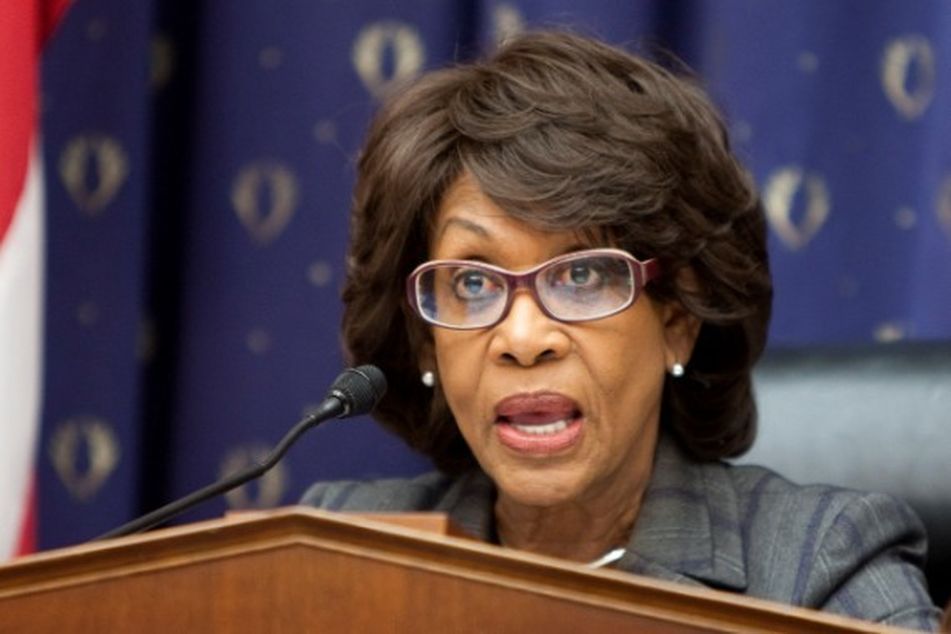Amended House bill includes fiduciary duty for muni advisers
 Rep. Maxine Waters
Rep. Maxine Waters
Legislation that would narrow proposed Securities and Exchange Commission regulation of municipal advisers would require them to meet a fiduciary-duty standard of care, according to the bill's sponsors.
Legislation that would narrow proposed Securities and Exchange Commission regulation of municipal advisers would require them to meet a fiduciary-duty standard of care, according to the bill’s sponsors.
The House Financial Services Subcommittee on Capital Markets approved the bill Wednesday. That measure, however, doesn’t contain the fiduciary-duty provision.
Instead, it will be included in a substitute amendment that the full committee will vote on in the coming weeks.
The substitute amendment would exempt from fiduciary duty elected and appointed officials, bond underwriters, accountants, auditors, engineers and bank employees who didn’t provide investment advice.
The original bill, written by Rep. Robert Dold, R-Ill., wouldn’t have imposed the federal fiduciary-duty standard on investment advisers to state and local governments. It would have required them to adhere to state fiduciary rules.
As the bill made its way through the legislative process, other lawmakers convinced Mr. Dold to change the language.
“Most everyone agrees that the federal fiduciary-duty standard is acceptable … for municipal advisers,” he said at the subcommittee meeting.
The measure is designed to rein in a proposed SEC regulation, mandated by the Dodd-Frank financial reform law, that for the first time would require muni advisers to register with the commission.
Since the SEC made the proposal in December 2010, it has received more than 1,000 comment letters, many from critics who worry that the draft rule could define too many people — ranging from local officials to bank tellers — as muni advisers, subjecting them to fiduciary-duty standards and raising financing costs for governments.
“Most of us, Republicans and Democrats alike, believe the SEC’s proposed definition extends far beyond what Congress intended,” said Mr. Dold, whose bill would limit the term “municipal adviser” to those formally hired and paid to provide advice to governments on financing roads, bridges, schools and other public projects.
Some Democrats have concerns about the bill.
The Dodd-Frank law addresses two important problems: municipalities’ entering complex financing arrangements that they don’t understand, and advisers’ making unsuitable investment recommendations, according to Rep. Maxine Waters, D-Calif. Some of those advisers curried favored with officials through campaign donations.
Ms. Waters acknowledged the concerns of critics of the SEC’s proposed rule but said that Mr. Dold’s bill “goes way too far in the opposite direction.”
Some of Ms. Waters’ colleagues insisted on a subcommittee vote on the language in the substitute amendment, which won’t be finalized until the full committee acts on the bill. They sought a strong fiduciary-duty provision.
“I don’t think we should be voting on this until we see the manager’s amendment,” said Rep. Carolyn Maloney, D-N.Y.
“[Fiduciary duty] is a critically important point,” she said. “I don’t want to see any weakening of the standards in the oversight of municipal financial advisers.”
Rep. Gwen Moore, D-Wis., tried to assure her Democratic colleagues that the bill would meet their demands once it were placed before the full committee.
The bill had to advance Tuesday because the number of legislative days this year is quickly dwindling, she said.
“I think we’re moving forward in an extremely constructive direction,” said Ms. Moore, who is working on the substitute amendment with Mr. Dold. “Our goal was to put together a bipartisan agreement so that the SEC would realize that we’re serious.”
In recent congressional testimony, SEC Chairman Mary Schapiro said that the final rule won’t cover as many people as the proposed rule.
The SEC doesn’t have a timeline for issuing the final rule, according to spokesman John Nester.
He declined to comment on Mr. Dold’s bill but wrote in an e-mail: “We share the lawmakers’ interest in this issue.”
The SEC on Tuesday released a report calling on Congress to give it more authority over the $3.7 trillion muni securities market in order to protect investors. It is seeking the power to improve disclosures and require issuers to provide audited financial statements.
In June, Stockton, Calif., filed for bankruptcy protection, while Jefferson County, Ala., declared the biggest muni bankruptcy in history last year.
Learn more about reprints and licensing for this article.








